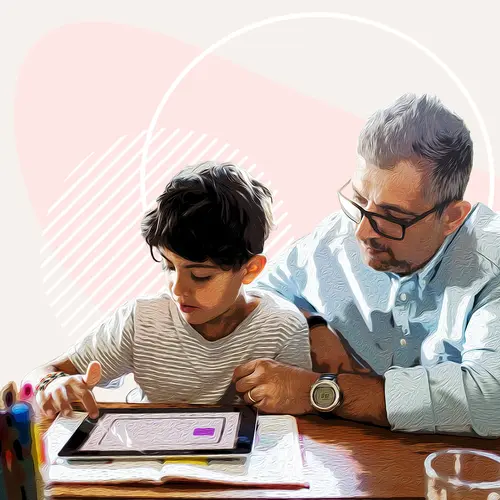Your child or teen comes home from school one day and says they want to do a cleanse. Maybe they say they want more energy or to get to a healthy weight. These are healthy goals. So should you agree?
The short answer is no. Cleanses sound great, especially when kids hear their friends or their favorite celebrity talking about them. But there’s a high chance that they won’t do any good. And in some cases, they can even harm kids and teens.
There are far healthier ways that kids can eat to keep their weight healthy and give their bodies energy to move and learn.
What It Means to Do a Cleanse
Cleansing is based on the idea that toxins in the environment and unhealthy foods can zap you of energy and keep you from a healthy weight. Cleanses claim to get rid of those toxins by limiting the foods you eat -- or cutting out all food to give your body a “break.” That idea, though, isn’t backed up by reliable research.
Many cleanses last a few days. Others can take as long as a month. Each plan is slightly different. Some cut out all solid food for a while, then have you start up again slowly, with fruits and vegetables. Other cleanses suggest that you drink nothing but certain kinds of juice. Many detox diets also urge you to buy special herbs or supplements, too.
Is It a Healthy Choice for Kids?
Like all fad diets, there’s no proof that a cleanse will deliver on its promises. And for kids and teens, they’re a pretty bad idea.
“Cleanses are typically very low in calories, proteins, vitamins, and minerals,” says Alissa Rumsey, a spokeswoman for the Academy of Nutrition and Dietetics. In other words, they’re missing everything your child needs to stay healthy and keep growing. “Even just a few days of a cleanse can lead to muscle loss,” she says.
Plus, kids need food to fuel all the healthy things they should do during the day -- exercise, focusing in school, even getting a good night’s sleep. When they restrict food (or cut it out entirely), they won’t have the energy or motivation for those good habits.
Lots of people claim that doing a cleanse helps them feel better. But experts say there’s no proof that a detox diet will magically transform your child’s body.
“Our liver and kidneys do a great job of cleaning our system on their own, especially if your child consumes a balanced diet with plenty of fruits, vegetables, whole grains, lean protein, and healthy fat,” Rumsey says.
You should also know:
“Natural” doesn’t mean “safe.” Many detox diets use herbs or natural supplements. But most aren’t approved by the FDA, and some can be harmful, especially to children and teens.
Your child’s reason for wanting to do a cleanse. “Why a child wants to do a cleanse or all-liquid diet in the first place is a really good question,” says Danelle Fisher, MD, chairwoman of pediatrics at Providence Saint John’s Health Center.
Some kids may be curious because of what they’ve heard from friends or read online. But if you have reason to think your child’s thinking about food or their body in an unhealthy way, “reach out to your doctor,” Fisher says.
Also, remember that your kids watch what you do and model the choices you make. If you’re constantly talking about weight loss or trying the latest detox or other fad diet, don’t be surprised if your child wants to do the same.
What’s the Verdict?
“There’s no recommended cleanse for kids,” says Lori Zanini, a registered dietitian in Los Angeles. “They’re unnecessary, and there’s no science-based evidence to support the need for them.”
If your child is unhappy with what they are eating or their weight, it’s important to find out why and let them know there are far better ways to fix the problem. Sit down with your child and have them write down the foods they ate today and how they made them feel. Then ask what healthy changes they’d make if they could go back in time. Could they have had more whole grains, fruits, or veggies? Or less sugary or fried foods?
These kinds of questions will help your child get in the habit of thinking about what they choose to eat. You can also help them plan to make better choices the next day -- you can talk about keeping healthier snacks at home or making lunches and dinners instead of eating out.
Guidance like this will help them become more aware of what healthy eating is and how it can fuel their body and brain. That’s a lasting lesson that no cleanse or detox diet can deliver.

